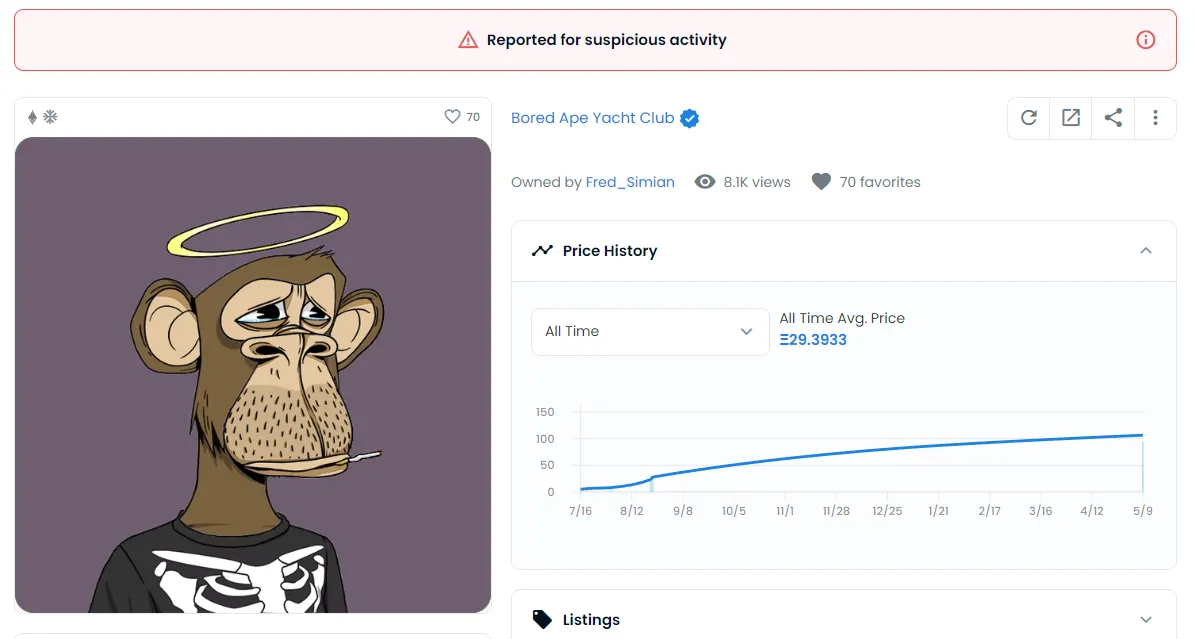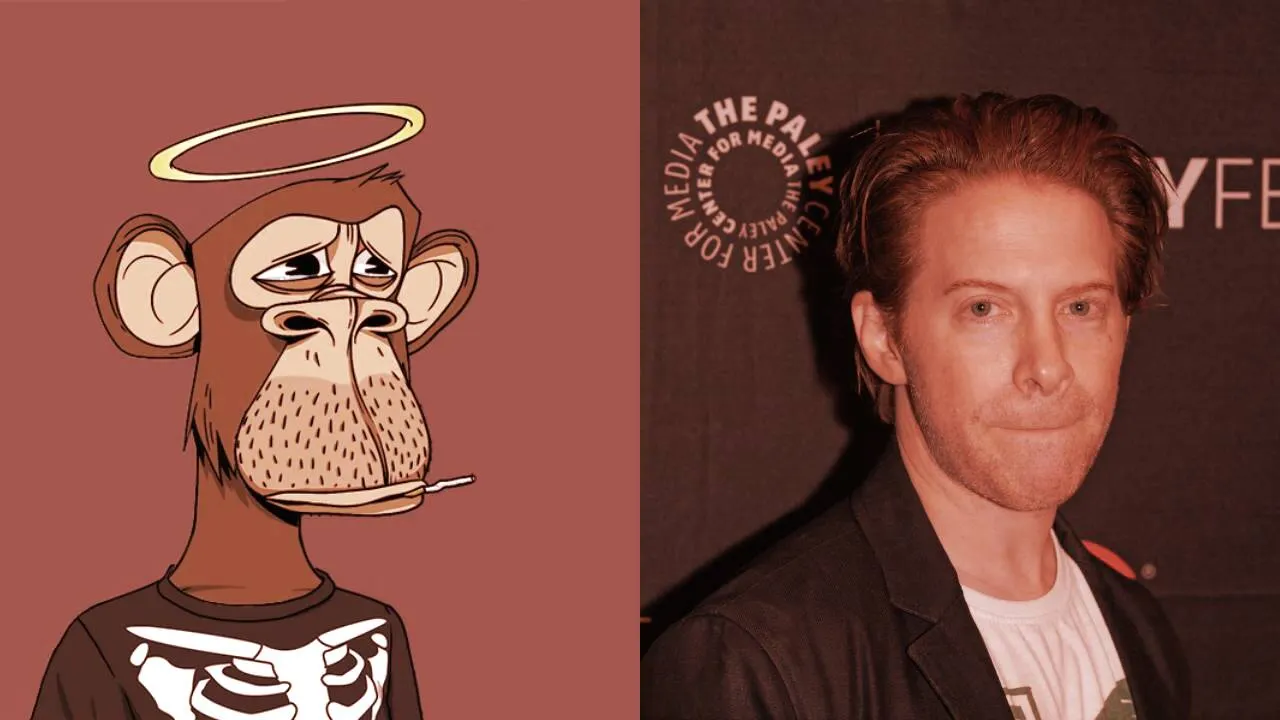Actor Seth Green has been reunited with the Bored Ape Yacht Club NFT he lost in a phishing attack last month, according to a BuzzFeed News report. Green reportedly paid 165 Ether (more than $295,000 at current prices) for the NFT, after it was sold on to a collector.
In total, four of Green's NFTs worth more than $300,000 were stolen last month, including Bored Ape NFT #8398, which not only cost him some $200,000 to purchase, but was also meant to be the star of Green’s upcoming TV show "White Horse Tavern."
Happening now
Join me https://t.co/GeByqCjlak— Seth Green (@SethGreen) June 9, 2022
On Thursday, during an appearance on a Twitter Spaces chat, Green confirmed that the NFT “is home.” Transaction records indicate that the funds were sent from a wallet controlled by Green to an NFT collector known variously as "Mr. Cheese" and "DarkWing84," through crypto escrow platform NFT Trader. The collector claimed to have purchased the NFT "in good faith" after Green was scammed while trying to mint an NFT on a fake site; in late May, Green threatened legal action against DarkWing84, before confirming that he had made contact with the collector.
At present, NFT marketplace OpenSea has left a flag reporting Bored Ape #8398 for “suspicious activity” active, meaning that the NFT is frozen and can't be bought or sold on the marketplace; hence why Green turned to NFT Trader in order to conduct the transaction with DarkWing84.

Bored Ape NFTs and IP
While it is not immediately clear what convinced DarkWing84 to return the NFT to its initial owner—money aside—the events surrounding the story raised questions regarding the intellectual property (IP) rights conferred by NFT ownership.
Licensing rules applied to the Bored Ape Yacht Club NFT series state that while Yuga Labs, the creators of the collection, owns the copyright to the brand, the company gives the owner of the individual NFTs a broad license to use the image they own, including an unlimited, worldwide license to use, copy, and display the purchased art. Owners of the NFTs have already used those licensing rights to create Bored Ape-branded content and businesses, ranging from restaurants to bands.
Those rules, however, don’t account for NFTs that were stolen and later resold, leading to speculation that Green would no longer be able to go ahead with his planned TV show.
The actor himself was confident that since his NFT would be considered stolen art, whoever bought it wouldn't be "legally entitled to exploitation usage of the underlying IP.”

